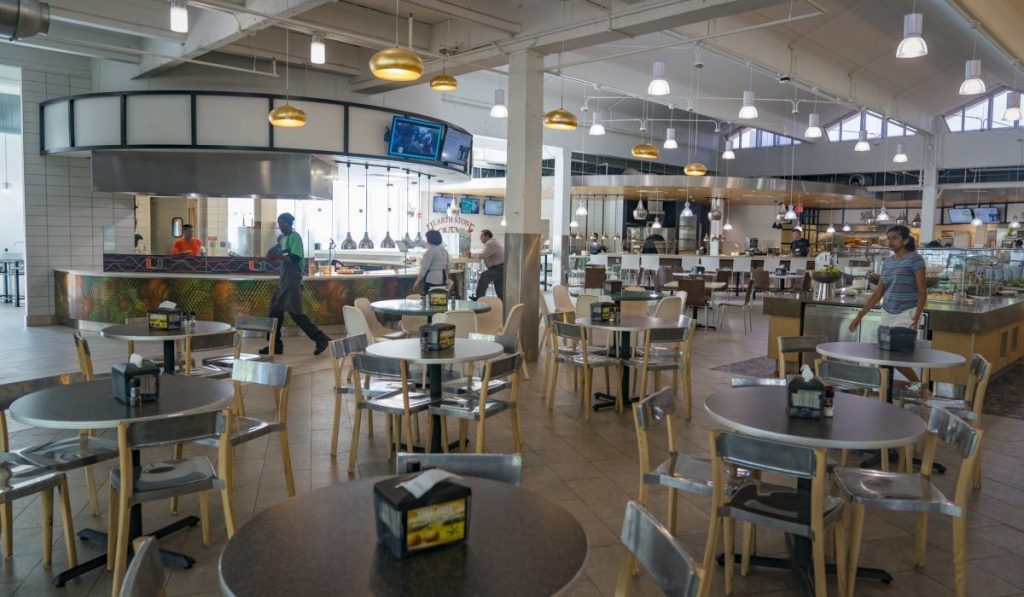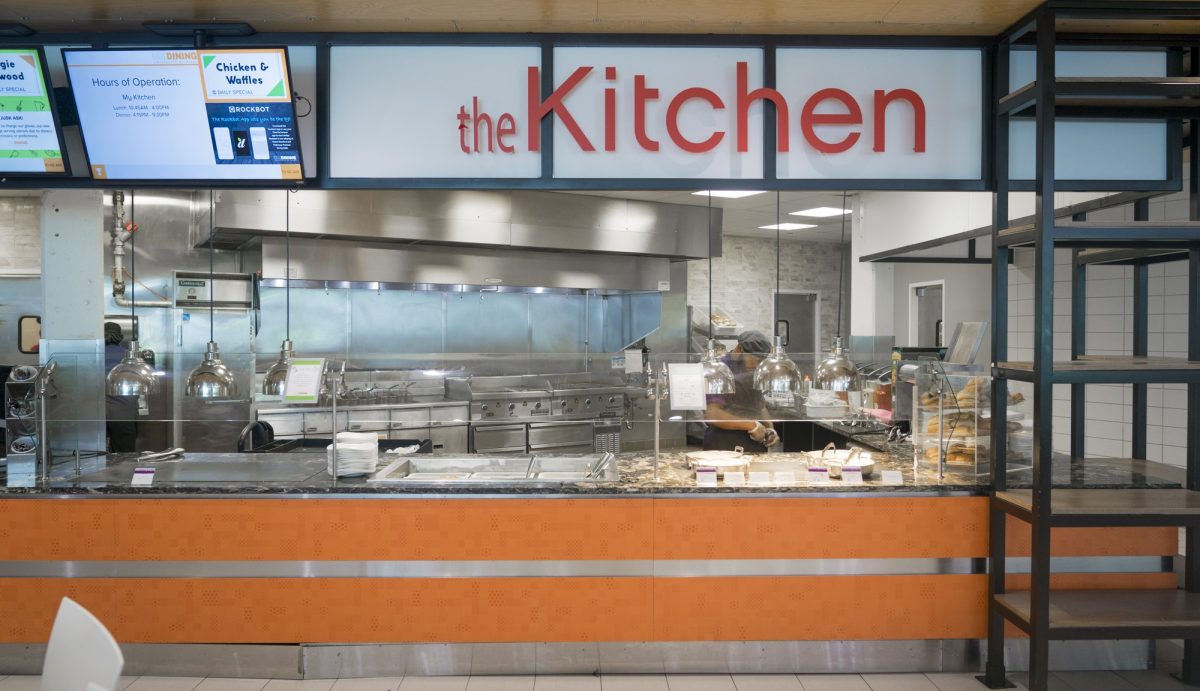
From nut-free dining to Kosher-friendly meal swipes, this school year marks the implementation of many new dining options for students and faculty with all dietary needs.
Meagan Clements, director of marketing and guest experience for UM Dining, said she believes that with a growing population of students with dietary restrictions and life-threatening allergies, reliable dining options on campus are a necessity.
Clements said that diet accommodation on campus is nothing new and has always been a priority.
“We are always looking for ways to make our dining options more inclusive,” she said. “We conduct surveys, focus groups, and just talk to our students.”
Clements said that over the past summer, the dining halls went 100% nut-free, which means that peanut butter and other nut products are no longer served.
Freshman Gabrielle Chapman, who is severely allergic to tree nuts, said she believes this change is crucial for students like her.
“I carry several EpiPens with me at all times,” said Chapman, a marine science major. “And the fear I have always had is no one around me may even know how to use them, but now I worry less.”
However, Clements said that proper accommodations have been made for all the peanut butter lovers as well: “Wowbutter,” a soy alternative to nut butters, is offered as a permanent solution for all peanut butter needs.
Accommodations for religious dietary needs have also been implemented. The Corner Deli and Pura Vida, which both offer Kosher-friendly options on campus, now take meal swipes as payment.
Clements also said that people at the dining halls are always willing to help, and recommends asking an associate if students are ever doubtful of the labels distinguishing vegetarian, vegan and gluten-free options.
“One of my favorite things to tell students, especially incoming students, is that you have to ask the questions,” she said. “Our staff isn’t scary, we want to help you.”
Clements said that dining hall recipes come from a database of thousands and are altered in the kitchen to better fit plant-based and gluten-free diets. She said this is why the labeling of the Dine on Campus app and paper labels on food sometimes contradict: The paper labels can be updated, but the digital ingredient lists cannot.
Changes such as these are the result of the dining halls adapting to the changing food preferences of students, and their expectations of what they put on their plates.
Moreover, as a result of student surveys that indicated the desire for more food options from the Courtside Eatery, acai bowls were added to the menu at Fitberry in the Wellness Center.
“I plan on trying one of the acai bowls at Fitberry soon because acai is really expensive, but the bowls here are cheaper than the ones at the Farmer’s Market,” said Alexia Vignau, a sophomore microbiology major.
Along with increased food options, the dining experience has also become more sustainable, Clements said. The dining halls have switched to tree-free napkins, straws and to-go containers—all products of the company Emerald.
According to the company’s website, their products are made not out of paper but from bagasse, a part of the sugarcane plant, and are fully compostable. Fresh Fusion, Pollo Tropical and Panda Express now all use the compostable to-go containers.
For more information on dining services and events, all updates can be found online at dineoncampus.com/miami. If students have any complaints or questions, they can call (305) 376-7337.







